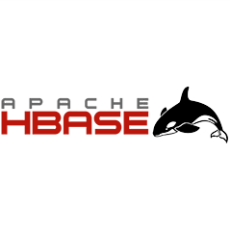Compare Products

|

|
Features * Linear and modular scalability.
* Strictly consistent reads and writes.
* Automatic and configurable sharding of tables
* Automatic failover support between RegionServers.
* Convenient base classes for backing Hadoop MapReduce jobs with Apache HBase tables.
* Easy to use Java API for client access.
* Block cache and Bloom Filters for real-time queries.
* Query predicate push down via server side Filters
* Thrift gateway and a REST-ful Web service that supports XML, Protobuf, and binary data encoding options
* Extensible jruby-based (JIRB) shell
* Support for exporting metrics via the Hadoop metrics subsystem to files or Ganglia; or via JMX
|
Features * The Scylla row cache, unlike the original Cassandra cache, is designed to reconcile data in cache with incoming writes. Cassandra’s row cache invalidates the whole partition for a given table on write, but Scylla’s does not. The result is that Scylla can run mixed read/write workloads efficiently. This reduces the need for data model complexity that is only present in order to work around the Cassandra read-before-write problem. Reducing data model complexity can have the indirect result of saving storage bandwidth as well.
* Scylla does not need to parse cached data from stable format to in-memory format before serving it, because the Scylla row cache already holds data in the needed format.
* Scylla is a new approach to NoSQL data store design, optimized for modern hardware. The typical design of NoSQL data stores (left) consists of a JVM which runs on top of Linux, utilizes the page cache, and uses complex memory allocation strategies to “trick” the JVM garbage collector to avoid stop-the-world pauses. Such a design suffers from sudden latency hiccups, expensive locking, and low throughput due to low processor utilization.
* ScyllaDB networking is designed to squeeze the most out of the hardware. No different from the other Scylla components, we optimize the hell out our CPU, our memory management and similarly, the network. Scylla supports two different networking modes—our own native Seastar network stack and the traditional Linux stack.
|
LanguagesCPP Java Python Ruby |
LanguagesCPP Java |
Source TypeOpen
|
Source TypeOpen
|
License TypeOther |
License TypeGPL |
OS Type |
OS Type |
Pricing
|
Pricing
|
X
Compare Products
Select up to three two products to compare by clicking on the compare icon () of each product.
{{compareToolModel.Error}}Now comparing:
{{product.ProductName | createSubstring:25}} X